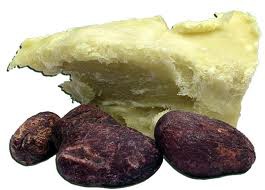A group of women from the Sagnarigu Women Centre for Shea Butter Production has pleaded to the government to support them to produce on a large scale.
Safia Alhassan Andani, the leader of the group, in an interview with B&FT said before the centre was upgraded and inaugurated by the United Nations Development Programme (UNDP) and the Embassy of Japan, the women were into farming and petty trading. She said they later found shea butter processing a more lucrative business than what they were doing before.
The Embassy of Japan funded the extension works with approximately US$85,933 under Japan’s Grants Assistance for Grassroots Human Security Projects (GGHSP) through Africa 2000 Network, UNDP’s implementing partner. The aim was to assist the Walewale and Sagnarigu centres to develop their shea butter processing capabilities through the expansion and improvement of their working areas.
Safia said the centre does not employ any technological means to process the shea butter and this has resulted in low production. She reiterated the need for government to support them to enhance production, saying “even with these inadequate facilities we can produce five bags of shea butter a week.”
The UNDP provided support in improving the production environment including providing electricity, pipe-borne water and water storage facilities; assisting them to acquire working tools; and improving shea butter processing skills through the UNDP-Japan Women in Development Fund.
Safia said the women have formed a cooperative, known as “Suglo mbor buni” Women Cooperative. “Suglo mbor buni” literally means “with patience we can create wealth.”
According to her, the cooperative enables them bargain well for the price of the products and also gives them a strong voice to solicit for funds.
She said their main challenge is packaging of the products and acquiring certification from the Ghana Standard Authority, which will enable them to export some of their products to other parts of the world. She therefore called on the government to establish a Shea Butter Board to promote the industry.
The shea butter industry is reckoned to benefit close to two million poor people, about 95 per cent of whom are rural households, though its full potential is yet to be exploited. More than 900,000 women in the three Northern regions collect over 130,000 tonnes of dry nuts for shea butter production annually.
The infant industry is an attractive business venture earning about US$30 million in foreign exchange for the national economy yearly.
Business News of Wednesday, 9 January 2013
Source: thebftonline.com
Shea butter production needs technological boost













